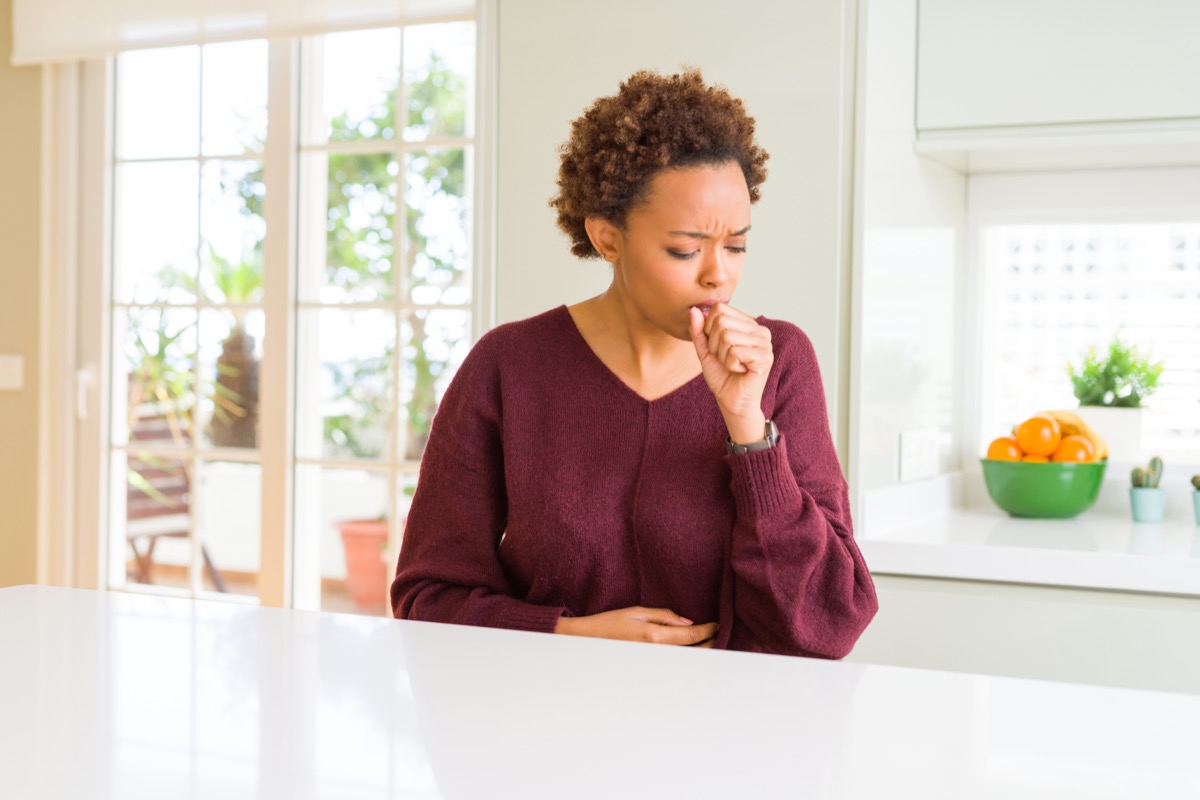“We know that in … families, for example, if you have a source case, it’s not unusual for some people to escape infection whereas other family members get infected,” William Schaffner, MD, a professor of infectious disease at Vanderbilt University, told ABC News. Given how easily COVID spreads within households, this suggests that some people might have a certain degree of immunity to COVID, even if they haven’t gotten sick. RELATED: For more up-to-date information, sign up for our daily newsletter. That’s in line with a recent study from Antonio Bertoletti, MD, a virologist at Duke NUS Medical School in Singapore. As he told The New York Times, “a level of pre-existing immunity against SARS-CoV2 appears to exist in the general population.” Per the study, ABC News reports, 50 percent of non-infected people have T cells that recognize COVID-19, which could mean at least partial immunity. T cells are your body’s way of fighting off pathogens, including viruses. Because COVID-19 is a new coronavirus, it was thought that T cells would not be able to detect it and prevent infection. For some people however, exposure to past, less serious coronaviruses—like those causing common colds—may have created long-lasting T cells that can recognize the thread of COVID, and keep them from catching it. Along those same lines, in discussing why children seem less susceptible to the virus, Todd Ellerin, MD, told ABC News, “My initial gut was that [children] had more circulating antibodies just because they’re generally infected more with the family of coronaviruses, but that’s just a guess.” This is called “cross reactivity,” but as ABC News notes, it is still not certain that this is actually why some people are more likely to get coronavirus, or why some cases are so much more severe than others. Even Bertoletti cannot say for sure that cross reactivity keeps people healthy.ae0fcc31ae342fd3a1346ebb1f342fcb Another theory as to why someone is more or less likely to catch COVID has to do with how much of the virus they’re exposed to. “Part of it may be clearly dose,” Schaffner told ABC News. “Some people simply get a larger dose of the virus and then they’re more apt to become ill.” The amount of virus in a person’s system, or their viral load, does seem to have an effect on the severity of their COVID symptoms, as previous studies have shown. But the infectious dose of coronavirus—that is, how much of the virus you need to encounter before you get sick—is believed to be low, according to researchers. For his part, Ellerin told ABC News that he does not think viral load explains why some catch COVID and others don’t. While it’s possible that a low amount of coronavirus-sensitive T cells and exposure to a higher viral dose could make you more likely to catch COVID, doctors are still not entirely sure. In the meantime, it’s important for everyone to behave as though they don’t have immunity to coronavirus, which means maintaining social distance, keeping masks on, and frequent hand washing. And for more on how COVID infects you, You’re More Likely to Get COVID Through the Air Than This Way, Doctor Says.
